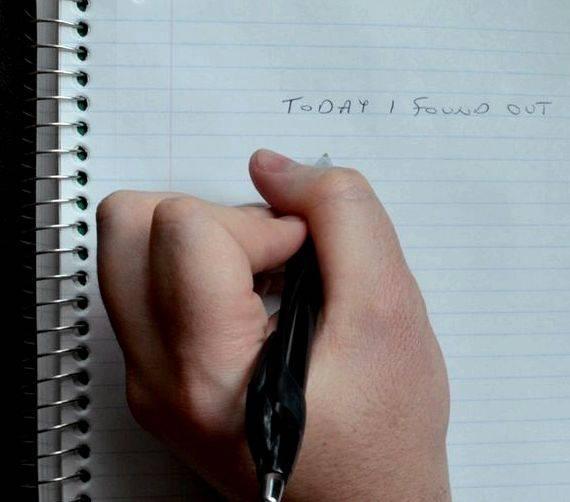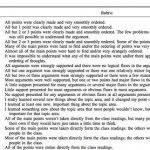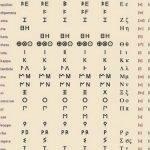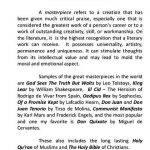This goes back to the art of divination the early Romans named avspecium (coined after aves “birds” and specio “I watch” =>specious ). Bird-watching the Roman way so to speak.
One way auspices would use to guess good and bad omens was to watch which direction some auspicious types of birds like ravens, crows or eagles were flying by. These birds were supposed to play the role of messengers of the gods. Here is a nice study of this type of divination.
This was also practised in Ancient Greece and named οἰωνίζομαι (ornithomancy) .
If birds were flying by on your right this was good omen. On the left (sinistra ) that was bad omen .
The word sinistre was already a synonym of bad omen in Old French but had lost the meaning of “left” when it was introduced into Middle English.
In Italian though it still has both meanings.
Edit
As FumbleFinger rightly observes, right handed people have a natural tendency to associate negative sensations to their left-hand side. Yet the question was about the word sinister which can be traced back to Latin.
The etymological path, as far as I understand it, is as follows:
1a. Early Ancient Greek σκαιὀς. “left, awkward, ill-omen”,
1b. Latin scaevus. “left, ill-omen”,
2. Latin sinister. “on the left hand side, ill-omen”,
3. Old French senestre /*sinistre*, “sinister” occasionally “awkward”.
Left is already gauche in the 13th century – origin obscure,
4. Middle English ca 1400: sinister “unfavourable”, “deceitful, prejudicial, dishonest”.
Also consider the following points:
- A considerable number of languages have the “awkward” sense associated with the word for “left” but very few of them also have the sense of “ill omen”.
- The Latin public and private life was heavily influenced by superstitions. For instance the reason why the Roman calendar evolved from lunar to solar is because of the drift accumulated by having only 29 and 31 days months. An even number of days per month was ill-omen, so that there were no 30 days months before the Julian calendar.
- Now that divination is much less prevalent, most Romance languages (Spanish, Portuguese, French and Romanian for instance) have lost the coupling between left and ill-omen (but still retain the awkward sense).
Another curiosity I’d like to mention is that the aforementioned Early Ancient Greek word for left (σκαιὀς. “skaios”) and its Latin cognate (scaevus ) seem to come from a Proto Indo European root for shadow (same etymology actually as “shadow” itself): (PIE *skeh2 -i-uo-, via Pt Italic *skaiwo) which is to compare to several other Indo European languages (various Celtic languages, Greek, Lithuanian, Sanskrit, Avestan) in which right-hand side also means southwards.
There is a lot of evidence suggesting that ancient Indo Europeans and Semites orient ated themselves facing eastwards (like old maps do) because this is where the sun rises in the morning.
In the northern hemisphere, when one faces eastwards the sun is always on the right-hand side and one’s shadow is thus always on the left-hand side, which explains the relation in some antique words for left with similar words for shadow.
@FumbleFingers Romance language do follow the universal pattern of left = awkward and right = correct/just.

But the ill-omen connotation which is quite a different thing is now mostly decoupled. In this useful catalogue of translations for left handed there are few occurrences of ill omen. Alain Pannetier Φ Aug 24 ’11 at 6:48
I’m surprised that the answers so far haven’t mentioned two factors, neither of them decisive but both relevant.
First, it’s not so long ago that left-handed schoolchildren were punished for their ‘wilful disobedience’ in writing with the wrong hand; this was either because they made the rows of children writing at desks look untidy or because, with fountain pens universal, covering the new words with your hand (as lefties do in left-to-right writing) causes smudges. [Choose your preferred explanation: both can be found in convincing sources].
And mediaeval heraldry used the bar sinister as a mark of illegitimacy. ‘Sinister’ here meant only ‘starting from the left, the unusual side’, and the mark was a practical and non-judgmental “document” in pre-literate times. Fathers and legitimate children, however, saw such people as a threat to their position, and thought them unpleasant if not positively sinister.
answered Sep 3 ’11 at 10:49
Please permit me to add to the other helpful answers by partially extracting from further references; please read the links for the complete content. I have not extracted from word-detective.com/2012/01/right-left/ to save space, but it may aid.
Linguistics SE also features this similar question.
There is something righteous about the right hand: it is supposed to point in the right direction and do everything right. In older Indo-European, even a special word existed for “right hand,” as evidenced by Greek dexios (stress on the last syllable), Latin dexter. and others. A strong association connects the right hand with the south and the left hand with the north. Someone standing with his face turned to the rising sun (for example, while praying), will have his right hand stretched to the south and his left hand to the north. Old Irish tuath meant both “north” and “left” (when facing east). This case is not unique. Here is a variant of the most common definition of “left” in our dictionaries: “Connected with that part of the body which is situated to the west when one faces north.” Compare right. “straight, direct, not curved or bent; further from the main part of the heart.” In an old post on the etymology of north. I discussed the tie between the concepts “left” and “north” and the possibility of explaining north as meaning “left.” If Sanskrit naraka- “the kingdom of the dead” is related to Engl. north (which is uncertain), we can assume that in the opinion of the ancient Indians the Other Word was a cold place, rather than hell with its eternal fire, frying pans, and boiling pots, as we see it in medieval European pictures. Reference to “down” in north and some words for “left” cannot be excluded either. But the most noticeable thing is the paucity of Indo-European words for “right hand,” as opposed to the abundance of names coined for its opposite.
Words associated with the right side are generally complimentary or have signified something desirable, but those pointing to the left are quite the opposite. For example, even in modern times, everyone tries to get up on the “right” side of the bed and hopes to stay on the “right” side of one’s boss; that is, if the person is in his/her “right” mind.
Other languages reflect the same bias in favor of the right and against the left. In Latin, the word for “right” is dexter . from which has come the English word dexterous or dextrous ; meaning “skillful”. This is what a person who uses the “right” hand is expected to be.
An ambidextrous person should be even more skillful, since he is described as having two “right hands.
On the other hand, the Latin sinister is the left hand, that is, the wrong hand. Furthermore, left-handers were thought to be unlucky.
In Roman augury, or fortune telling, birds that appeared on the left side were interpreted as being bad luck; however, those on the right side presaged good luck. Now, in modern English applications, sinister means evil or ominous. [. ]
To add to the many other answers, before the introduction of toilet paper, the convention was to eat with the right hand and to clean up after using the toilet with the left. There are many examples of left hands and left-handedness being seen negatively as a result of that.
There is a folk-etymology that “cack-handed” (meaning clumsy or left-handed) refers to this, the dialect word “cack” referring to faeces.
answered Jun 25 ’13 at 17:25
I believe this explanation is widely accepted by anthropologist who have had the opportunity to see the left-hand-toilet-paper in action. TechZen May 8 ’14 at 13:49
Years ago, an attorney friend w/a history background, told me ‘sinister’, and, therefore,’sinistralian’, etc. came from the Roman legion’s concern about fighting alongside a left-hander while in the tortoise formation.
Perhaps not an evolution in or from Latin, but a contribution (in late ancient empire times) to Latin (from remotely ancient, Hebrew times).
suggests an origin in Judaic scripture and teaching, extending back possibly as far as the Patriarchal era. The concept seems to have related to a connection between heart and mind, the left (sinister) heart harboring innate (embued in the womb) evil influence on the mind; the right (dexter). the opposite.
In the current, less descriptive, more “scientific” era it might be said that such a “manifestation,” whether in belief or in actuality, might rest in the connection and dialog between reasoning and feeling (except with up and down orientations reversed) parts of the brain.
To think that such a concept is considered antiquated (or quaint) in current times is not comprehensively refutable:
Lefthandedness, even within a still living (barely) generation, was held (putting it kindly) to be “not so good” and/or “not well-forboding,”–even so bad as to be a visitation of life misfortune–and was sought to be reversed by training, both in homes and in schools. (. ever see a cursive writing chart showing pencil gripped in curl-around orientation?)
Confused handedness is sometimes observed clinically as a trait of some mentally disabled.
While no physiological, genetic, or congenital reason for abberent (left) handedness has yet been discovered–and left-handedness does not run in families–a clear connection between left handedness and trauma/accident/stress during the pre-handedness phase of fetal or infant development has been documented.
And might we ask if calling a person a southpaw (probably most people do not the source of that word) could have any connection to the term whereby things, luck, situations, prospects (etc) are said to “go sinisterly south”? (Please don’t pounce. Just a supposition. only for fun.)
if only Kipling were still around, to give the world a kinder-hearted replacement of that particular S word!
PS: Speaking of wombs and modern observations of early life influence on handedness, it certainly seems as if doctors of long-ago times had things to show us today, for which, in this instance, we had the Romans to thank for passing their words forward in time.






 Scaffolded writing and reviewing in the discipline of taxonomy
Scaffolded writing and reviewing in the discipline of taxonomy Ten ways to make your sister disappear summary writing
Ten ways to make your sister disappear summary writing My uncle jules guy maupassant summary writing
My uncle jules guy maupassant summary writing Mycenaean greek writing on the rosetta
Mycenaean greek writing on the rosetta Myth and the modern world summary writing
Myth and the modern world summary writing






